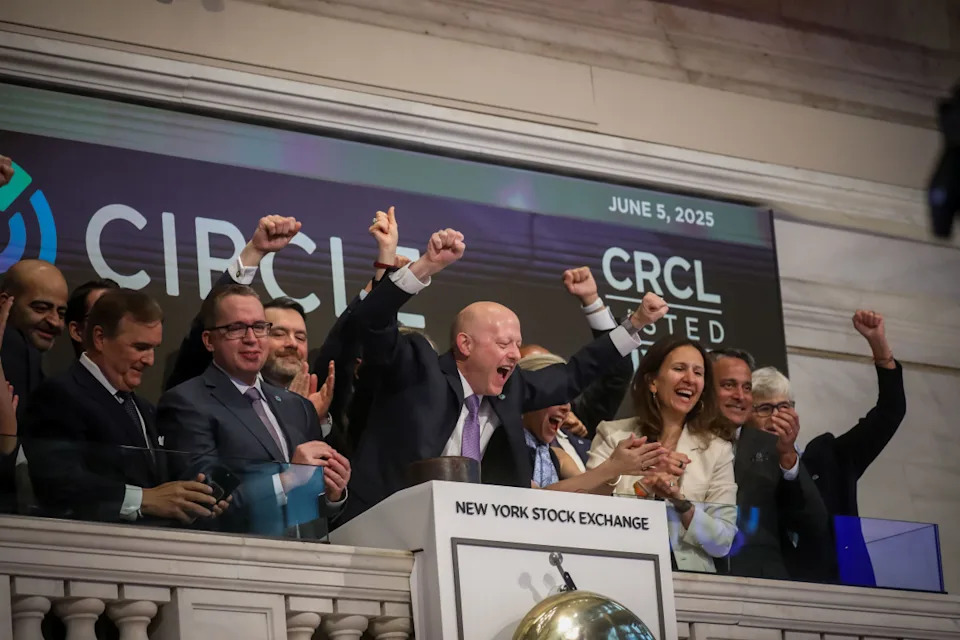
Circle announces new blockchain amid blockbuster earnings
Key Points
- Circle Internet Group (NYSE: CRCL) announced the launch of Arc, a new open layer-1, stablecoin-centric blockchain, on August 12, 2025.
- Arc, an Ethereum Virtual Machine (EVM)-compatible network, uses USDC as its native gas token and is designed for stablecoin payments and capital markets applications.
- Circle reported a 53% year-over-year revenue surge in Q2 2025, totaling $658 million, alongside a 52% increase in adjusted EBITDA to $126 million.
- Despite a net loss of $482 million due to non-cash charges related to its IPO, Circle's stock rose 6.5% in pre-market trading, reaching $172.01.
- The public testnet for Arc is expected to launch this fall, with full integration across Circle’s platform and interoperability with partner blockchains.
Summary
Circle Internet Group (NYSE: CRCL), the company behind the USDC stablecoin, unveiled Arc, a new layer-1 blockchain focused on stablecoin applications, on August 12, 2025. Arc, compatible with the Ethereum Virtual Machine, uses USDC as its native gas token and aims to support enterprise-grade stablecoin payments and capital markets solutions. A public testnet is slated for this fall, with full integration into Circle’s platform and interoperability with numerous partner blockchains. Alongside this launch, Circle reported impressive Q2 2025 earnings, with a 53% year-over-year revenue increase to $658 million and a 52% rise in adjusted EBITDA to $126 million. However, a net loss of $482 million was recorded due to non-cash charges tied to its recent IPO. Following its public debut on the NYSE in June 2025, Circle’s stock surged 6.5% in pre-market trading to $172.01. CEO Jeremy Allaire highlighted the company’s sustained growth and adoption across diverse use cases. With a market cap of $65 billion, Circle holds a significant 24% share of the stablecoin market since its founding in 2013.
yahoo
August 12, 2025
Crypto


